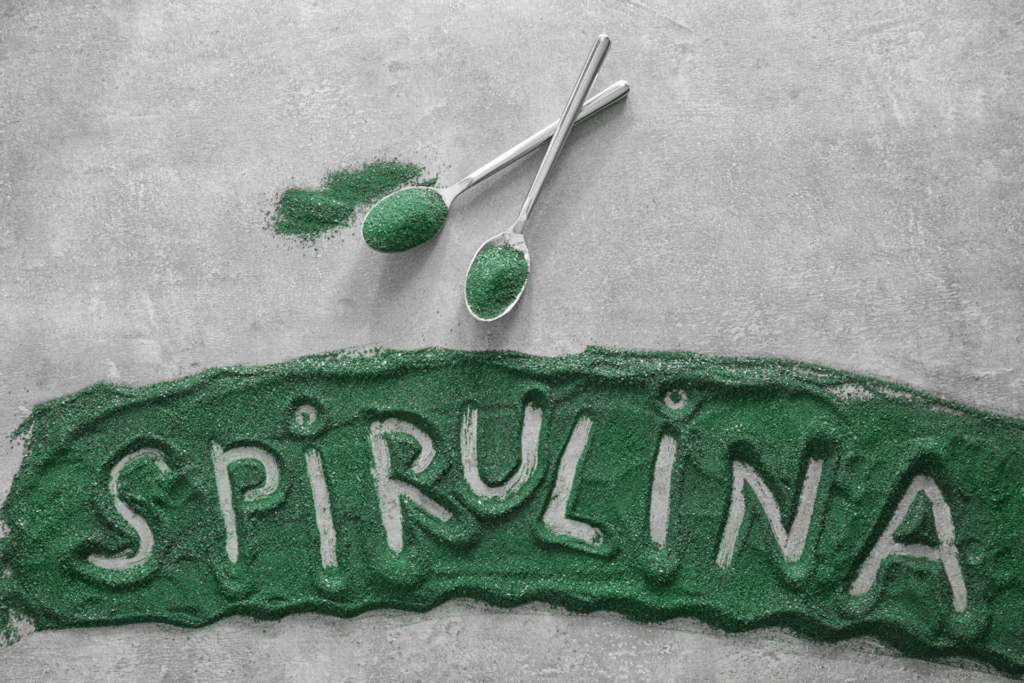Spirulina 8 health benefits that can fight various diseases
Overview
Spirulina is an alga that can grow in both fresh and saltwater. People often mix spirulina with yogurt, juice, or smoothies to improve its taste because it has a bitter flavor. In health food stores, you can usually find it in supplements. Vegetarians and vegans can benefit greatly from it because it contains a considerable quantity of protein and vitamins. Researchers have found that spirulina contains antioxidants and anti-inflammatory compounds, as well as the ability to regulate the immune system.
What Is the Function of Spirulina?
It is widely used to treat a wide range of health conditions, including fatigue, high cholesterol, high triglycerides, and viral infections. In addition to weight loss and increased energy, spirulina is said to boost the immune system. Only a few human studies have looked into its health benefits. However, preliminary research indicates that the following conditions would benefit from its use:
Nutritional Value
Among the nutrients found in a tablespoon of dried are:
- Calories: 20
- Protein content: 4.02 g
- Carbohydrate content: 1.67 g
- Fat content: 0.54 g
- Calcium: 8 milligrams (mg)
- Iron: 2 mg
- Magnesium: 14 mg
- Phosphorus: 8 mg
- Potassium: 95 mg
- sodium: 73 mg
- Vitamin C: 0.7 mg
Additionally, it contains thiamin, riboflavin, niacin, folate, and vitamins B-6, A, and K.
The 7 health benefits
1. Cancer-fighting properties

It contains many antioxidants that have anti-inflammatory properties. Cancer and other diseases are caused by chronic inflammation. Researchers have found that phycocyanin—the plant pigment that gives its blue-green color—not only reduces inflammation in the body but also inhibits cancer cell growth. Studies on immune-enhancing proteins are being conducted to see if they can be used to treat cancer.
2. Cardiovascular Fitness

Researchers found that the protein in it can lower cholesterol levels by reducing the body’s absorption of cholesterol. By keeping your arteries clear, you can reduce the strain on your heart that can lead to heart disease and blood clots that cause strokes. Triglycerides are also reduced by their protein. The presence of these fats in your blood can cause the hardening of your arteries, increasing the risk of heart attack, diabetes, and pancreatitis. Additionally, it increases nitric oxide production in your body, which relaxes blood vessels. This has been shown to lower blood pressure, thus lowering your risk of heart disease.
3. Relief from allergy symptoms

People with allergies caused by pollen, animal hair, and dust may benefit from the anti-inflammatory effect of it, which has antioxidants. A study found that it significantly reduced symptoms like congestion, sneezing, and itching, indicating that it may represent a good alternative to allergy medications.
4th. Immune system support

The vitamins and minerals in spirulina are essential to maintain a healthy immune system, such as E, C, and B6. Spirulina also increases your body’s ability to produce white blood cells and antibodies that combat viruses and bacteria. Several laboratory studies have demonstrated that spirulina is effective at fighting influenza, herpes, and HIV, but more research is needed to test these effects in humans.
5. Maintains eye and dental health

It’s believed that spirulina contains the pigment zeaxanthin, which may help prevent cataracts and age-related vision loss. Spirulina may also promote good oral health due to its antibacterial properties. A study found that participants with spirulina-enhanced mouthwash experienced fewer dental plaque and gingivitis. Another study found it decreased the risk of oral cancer in those who chew tobacco.
6. It May Be Beneficial in the Treatment of Anemia

A variety of anemias exist. One of the most common symptoms is a reduction in hemoglobin and red blood cells in your blood. It is fairly common for older adults to suffer from anemia, which causes prolonged fatigue and weakness. But please keep in mind that this is only one study. Any recommendations will have to wait until more research is done.
7. Increases Muscular Strength and Endurance

Muscle fatigue is a result of oxidative damage caused by exercise. Many plant foods contain antioxidants that may be helpful to athletes and physically active individuals. Several studies have shown that spirulina enhances muscle strength and endurance.
Risks associated

As spirulina contains high amounts of nutrients, you should discuss its use with your doctor. The following risks may be associated with its use:
- Toxicants – Wild-harvested spirulina can be infected with bacteria and heavy metals. You may suffer liver damage if you consume these toxins in large amounts.
- Concerns during pregnancy – It is not clear whether blue-green algae is safe for pregnant or nursing women. Pregnant women should avoid spirulina due to its toxin risk.
- Bleeding disorders – People with certain bleeding conditions may experience more bruising and bleeding when they consume spirulina because it helps reduce blood clotting.
- Diabetes – If you have diabetes, you should monitor your blood sugar level when taking spirulina.
- Autoimmune Diseases – People with auto-immune diseases like lupus, multiple sclerosis, or arthritis may have worse symptoms when taking spirulina. Consult your doctor before consuming spirulina if you suffer from an autoimmune disease.
- Medication Interactions – Several medications can interact with or counteract the effects of spirulina, including some used to treat diabetes, immunosuppressants, and blood thinners.
How to incorporate it into your diet
Powder and tablets are available.
People can use the powder in the following ways:
- Make smoothies green by adding spinach to them.
- In salads or soups, sprinkle spirulina powder.
- Combine it with other healthy ingredients to make energy balls.
- Add a tablespoon to fruit or vegetable juices.
Outlook
The blue-green algae are a type of cyanobacteria. It is extremely nutritious. Blood lipid levels may improve, oxidation may be suppressed, blood pressure may be reduced, and blood sugar levels may be lowered. There is still more research to be done before any firm conclusions can be drawn, but spirulina may be worthy of the title of superfood.




